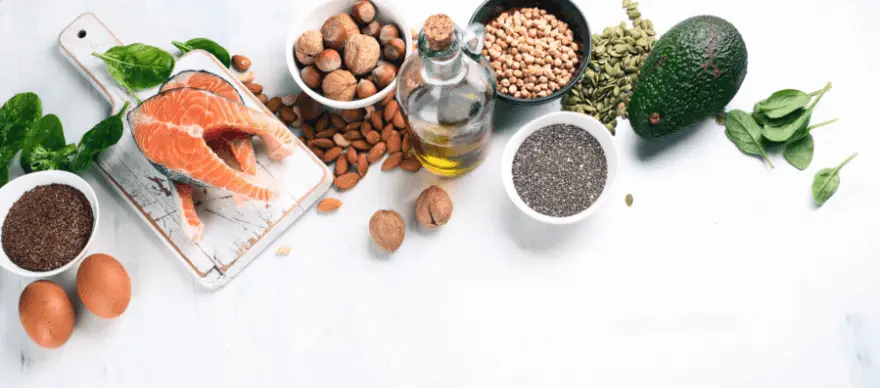Lifestyle
Monsoon Diet: What You Should Eat And Avoid
6639 Views
0

Monsoon diet tips
The monsoon brings relief from the heat, invigorates the beauty of nature, and sprouts hunger for munching on hot, delicious, nonetheless fatty foods. It also changes the climatic temperature and humidity, impacting the immune system.
Monsoons account for some of the highest cases of common water-borne diseases such as cholera, malaria, and typhoid. The combination of heat and humidity can also weaken the skin barrier, making it prone to damage and infections. Further, these may affect the immune system and your ability to enjoy monsoon to the fullest. Hence, it is vital to maintain health in order to make the best of this season.
Healthy foods to eat in the rainy season
The body is what the body eats. Therefore, the body must be full of nourishment and immunity-promoting foods to maintain health with an optimally functioning immune system. So, it is just as important to include healthy foods in your monsoon diet plan to eat during the rainy season.
The summer's extreme heat is when the body experiences excessive heat that the monsoon relieves. Internal body heat makes the body's digestive system sluggish, consequently affecting immunity. Therefore, an essential monsoon diet tip is to avoid foods that aggravate body heat and indulge in light, calming foods.
Here is a list of healthy foods to eat in the rainy season and foods to avoid.
- Eat: Light, protein-rich meals
Human bodies thrive on balanced nutrition that comprises an optimal balance of all food types. Proteins are complex foods that are slow to digest. You might think this could burden the digestive system, which is already sluggish. However, proteins make it to this list of healthy foods to eat in the rainy season because the already slow digestion of proteins keeps you fuller, sustaining you longer, instantly combating your cravings for unhealthy foods commonly longed for during the monsoons. Most food cravings originate when food gets digested quickly, and you need a quick fix. These quick meal fixes are easy to find in unhealthy but quick to make and eat snacks. Therefore, it is important to have light, protein-rich meals as part of your monsoon diet plan, which will help you eat well and avoid unnecessary cravings.
- Avoid: Heavy Foods
A staple of monsoons is the craving for deep-fried foods prepared at home or available at street-food stalls. Avoid temptation; deep-fried heavy foods can be spicy and acidic and aggravate a sensitive digestive system. They may also lead to water retention, acidity, and indigestion. Therefore, the ultimate monsoon diet tip is to forego heavy foods in favour of a diet containing healthy foods to eat in the rainy season.
- Eat: Immunity-boosting foods
No monsoon diet plan is complete without including immunity-boosting foods. These include ingredients like turmeric, ginger, black pepper, or honey that are integrated into homemade healthy foods to eat in the rainy season. You can also consider external supplements like ashwagandha, Triphala, Giloy, or Brahmi to boost your immunity. Another helpful monsoon diet tip is to include spices in your monsoon diet plans. Ensure you consume micro-quantities of anti-inflammatory spices like turmeric, cinnamon, black pepper, ginger, saunf, or coriander. Avoid heat-generating spices like chilli powder, garlic, onion, and green chillies.
Cold, cough, and the flu are common during the monsoon; hence, changes to monsoon diet plans must include adequate tulsi, mulethi, and other similar ayurvedic ingredients to help your body's immune system resist colds and coughs.
- Avoid: Raw, uncooked food
The monsoon-induced digestive system sluggishness can also affect the ability to digest and process raw foods efficiently. Not just that, while green leafy vegetables are full of antioxidants and vitamins, they may not be examples of healthy foods to eat in the rainy season and also know about monsoon test For example, a good monsoon diet tip would be to avoid vegetables like cauliflower, lettuce, spinach, broccoli, spring onions, and cabbage in your monsoon diet plans. Avoid these mainly due to the fact that they are high in water content and a risky source of infections during monsoons. If it is necessary for you to consume them, do ensure that you cook them for at least 30 minutes to make sure that all possible contaminants do not survive.
Other raw, uncooked foods to avoid during monsoons include any forms of seafood and meat, as they may not only be potential carriers of infection but also burden your digestive system due to their complexity.
- Eat: Gut health-promoting foods
Having good gut health does wonders for your immunity. It boosts your immune system and fosters good bacteria growth, which prevents infection by inhibiting harmful bacteria from taking over. Therefore, a list of healthy foods to eat in the rainy season is incomplete without gut-friendly foods like cucumbers, beets, beans, and more.
Good gut health is encouraged by foods that reduce inflammation - including bitter gourds, bottle gourds, and tomatoes. A monsoon diet plan rich in these vegetables can supplement you with essential vitamins like vitamin A, B6, B12, C, and K; and minerals like zinc, potassium, iron, and manganese. These diet inclusions ensure a healthy monsoon diet plan that is also a nutritional powerhouse for you.
Many things influence the human body, the climate being one of them. Eating meals suited to the outside temperature and environment can help facilitate a healthy immune system and mental state. It helps fight off physical diseases and improves mental well-being by aligning the body's energies. That is why it is necessary to have a deliberate monsoon diet plan full of healthy foods to eat during the rainy season.
Conclusion
The ultimate monsoon diet tip, perhaps, is to consume healthy food that makes you feel good while enjoying the beauty of the monsoons.
However, despite practising all the possible dietary measures, it is still possible to contract water-borne diseases during the monsoon, especially the common cold or flu. While many reflect localised cold and cough infections, some might prevail as prolonged fever bouts -- usually an indication to get checked for a possible infection.
If you experience persistent fever, get a comprehensive fever panel by multiplex PCR from Metropolis today!













1701259759.webp)









 WhatsApp
WhatsApp